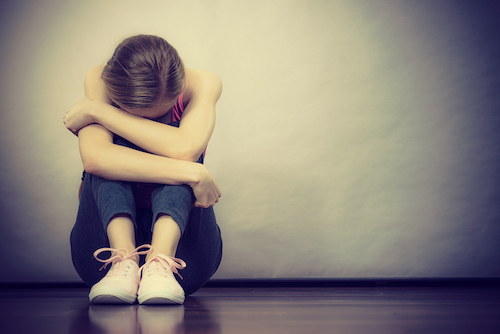 It’s a phenomenon that public health officials are warning could reach epidemic levels. Rates of loneliness have doubled over the past 50 years and have been said to have a greater impact on public health than obesity, alcohol or tobacco.
It’s a phenomenon that public health officials are warning could reach epidemic levels. Rates of loneliness have doubled over the past 50 years and have been said to have a greater impact on public health than obesity, alcohol or tobacco.
Now new research from the University of California San Diego has found that loneliness is experienced across the lifespan but is felt most acutely in three specific age periods: the late 20s, the mid 50s and the late 80s.
“These are all periods associated with stress for different reasons. In late-20s, there is stress from having to make major life-changing decisions such as taking a job, finding a life partner, having children, relocating to new city. In mid-50s, it is mid-life crisis with menopause in women and andropause in men, combined with onset of physical illnesses like arthritis, diabetes, high blood pressure, and also beginning to see deaths in family and friends. In late-80s, the risk of dementia is very high, physical pain becomes pervasive, and there is loss of friends leaving one feeling more and more lonely,” Dr. Dilip Jeste, Distinguished Professor of Psychiatry and Neurosciences and director of the UC San Diego Center for Healthy Aging, and author of the study told Theravive.
“We found that moderate to severe loneliness was surprisingly common – 76 per cent of people were found to have this level of loneliness using a widely used scale to measure loneliness,” he said.
Jeste and his colleagues undertook a study involving 340 residents of San Diego County aged between 27 and 101 who had previously participated in earlier studies on aging and mental health. Those who has significant phycological or physical ailments were excluded from the study, as were those who were diagnosed those with dementia, those who required significant living assistance or who lived in nursing homes.
The researchers used different measures to assess the participants’ loneliness, including the UCLA Loneliness Scale, a self-reported assessment of social isolation and a Wisdom Scale developed by Jeste and his colleagues to determine a participants’ level of wisdom.
They found that loneliness was surprisingly ubiquitous. Three quarters of those in the study reported they had experienced moderate to high levels of being lonely. This represents a significant increase on previously estimated rates of loneliness in the general US population, which previously ranged from 17 to 57 per cent.
“Loneliness has been in the news for the last few years. There have been reports of increasing loneliness in recent decades. The former Surgeon General Dr. Murthy called this increase a public health epidemic that is having greater impact on health than smoking, alcohol, or obesity. In the UK, there is a new Ministry of loneliness. As a geriatric psychiatrist, I have been concerned about loneliness in older people. All these factors led us to undertake this study,” Jeste said.
“At any age, loneliness is associated with worse physical and mental health. So, the increase in societal loneliness is likely to lead to worsening of physical and mental health. There are already reports of increased rates of suicide during the last two to three decades, especially among the youth. 2016 and 2017 were the first years in a long time when average longevity in the US decreased, an important reason being increased suicides. Thus, we are already seeing an impact of social anomie and loneliness,” he said.
Loneliness has been associated with declining mental health, substance abuse, and physical health problems like hypertension, malnutrition and disrupted sleep.
Jeste says an increasingly globalised world may appear to connect us, but in reality, is making us lonelier.
“In recent decades, globalization and increase in the use of technology have had a tremendous impact on our lifestyles. On the positive side, we can now travel anywhere in the world, and communicate with people all over the globe and instantaneously. On the negative side, the explosion in the information available has put pressure on obtaining as much knowledge as possible. Things are changing so fast that there is no stability. As soon as you think you have mastered some technology, it becomes old and is replaced by new devices. There is pressure on performing at a high level constantly because of global competition. Divorce rates have gone up, families have become smaller, and while use of social media has risen, in-person close relationships are becoming infrequent. Thus the social connectedness is becoming scarcer,” he said.
Elizabeth Pratt is a medical journalist and producer. Her work has appeared on Healthline, The Huffington Post, Fox News, The Australian Broadcasting Corporation, The Sydney Morning Herald, News.com.au, Escape, The Cusp and Skyscanner. You can read more of her articles here. Or learn more about Elizabeth and contact her via her LinkedIn and Twitter profiles.